Dear Readers,
Welcome to the new November issue of our special newsletter RETHINK:DESIGN Climate Relevance! In this series, we present examples of best practice for promoting the climate-friendly transformation of the economy and society.
RETHINK:DESIGN shows what impact design has on the circular economy, resource use, emissions, the circular economy and climate protection.
We’re shining a spotlight on enterprising concepts, taking a look at what’s happening in the research sector and looking for new mindsets and approaches for accelerating design’s sustainable momentum.
RETHINK:DESIGN - let’s get started!
RETHINK:DESIGN shows what impact design has on the circular economy, resource use, emissions, the circular economy and climate protection.
We’re shining a spotlight on enterprising concepts, taking a look at what’s happening in the research sector and looking for new mindsets and approaches for accelerating design’s sustainable momentum.
RETHINK:DESIGN - let’s get started!
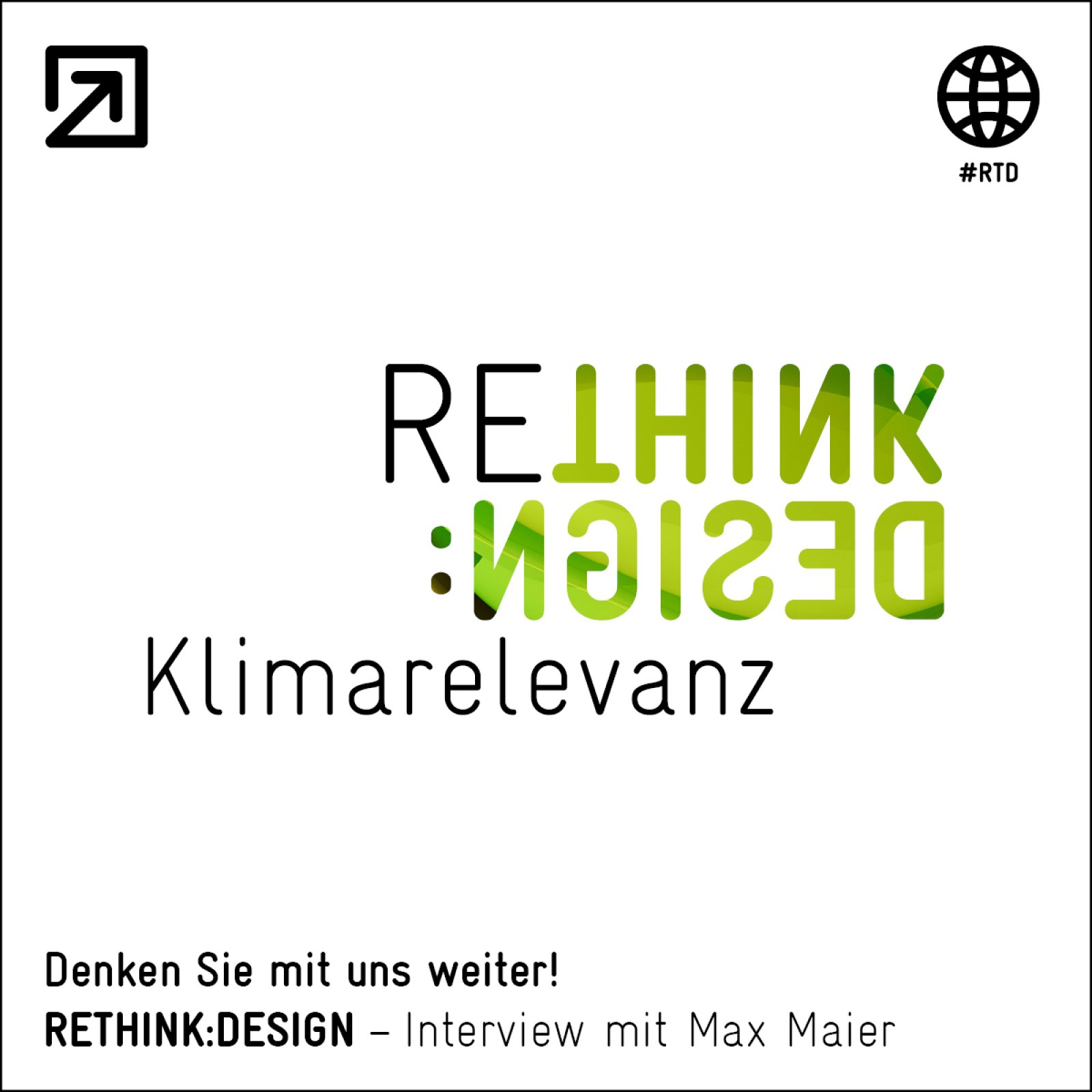
RETHINK:DESIGN CLIMATE RELEVANCE
Let’s think the future!
RETHINK:DESIGN – INTERVIEW WITH MAX MAIER
The transformation of a former industrial complex in the Weststadt area of Ludwigsburg has been underway for years. The former production halls now house startups and new businesses – in spaces that have been implanted into the existing structures.
An interview with Max Maier, the initiator and developer behind the project.
An interview with Max Maier, the initiator and developer behind the project.
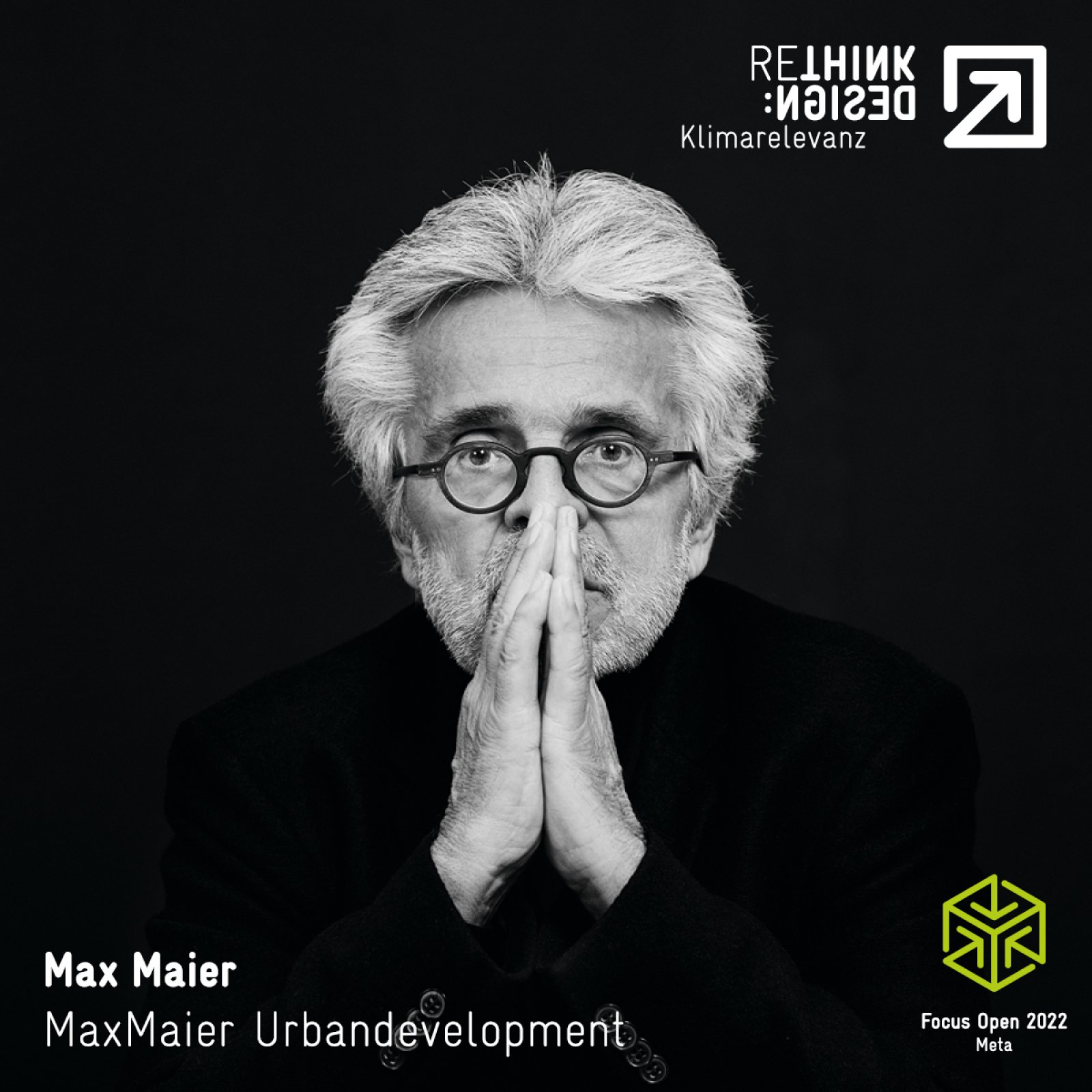
Photo: MaxMaier Urbandevelopment
There’s good reason why the Urbanharbor transformation project won the Meta award in the Focus Open 2022 competition: ultimately, it addresses such essential aspects as energy optimisation, sustainability, interconnectedness and carbon neutrality. Today the old industrial facilities are occupied by a mix of young businesses and established companies who work alongside one another.
If you look closely, you realise that Urbanharbor has a long history. Tell us about its roots.
It all started when Ludwigsburg station opened at the end of the 19th century. That gave rise to a very attractive location for industrial and commercial enterprises, and bit by bit they began setting up business there. Over the course of the 20th century, companies that had started out as small workshops grew into major firms and established themselves as famous Ludwigsburg-based enterprises. Areas that had previously been used for farming were transformed into commercial and industrial sites. Infrastructure and mobility have always been among the most important drivers for this expansion – and the area is just as well connected to the city centre as it is to the prosperous region that surrounds it and the A81 motorway. So the transformation took place on every level.
If you look closely, you realise that Urbanharbor has a long history. Tell us about its roots.
It all started when Ludwigsburg station opened at the end of the 19th century. That gave rise to a very attractive location for industrial and commercial enterprises, and bit by bit they began setting up business there. Over the course of the 20th century, companies that had started out as small workshops grew into major firms and established themselves as famous Ludwigsburg-based enterprises. Areas that had previously been used for farming were transformed into commercial and industrial sites. Infrastructure and mobility have always been among the most important drivers for this expansion – and the area is just as well connected to the city centre as it is to the prosperous region that surrounds it and the A81 motorway. So the transformation took place on every level.
And at what point did the current, second transformation begin?
In retrospect it was all the way back in 1982 when I joined Eisfink, a commercial refrigerator manufacturer. The company had moved from the neighbouring town of Asperg to the Weststadt area of Ludwigsburg in 1972, but 10 years later it found itself in financial difficulties. I was able to lead the company out of crisis and then focused on developing the production facilities. Both then and now, the core aim was to transform the industrial complex to make space for a varied mix of service providers, architectural firms, marketing agencies and large-scale retail. My focus has always been on combining life and work in order to build a city within the city. Vibrant and emotional communal areas are absolutely crucial to that – which is why, in the early 2000s, I started revitalising industrial buildings by turning them into gastronomic and event locations. That resulted in spaces like the Werkcafé and the Alte Werkcafé. [...]
Click here to read the full interview.
Click on the links below to access our previous content:
Interview with environmental engineer Dr Odette Deuber
In retrospect it was all the way back in 1982 when I joined Eisfink, a commercial refrigerator manufacturer. The company had moved from the neighbouring town of Asperg to the Weststadt area of Ludwigsburg in 1972, but 10 years later it found itself in financial difficulties. I was able to lead the company out of crisis and then focused on developing the production facilities. Both then and now, the core aim was to transform the industrial complex to make space for a varied mix of service providers, architectural firms, marketing agencies and large-scale retail. My focus has always been on combining life and work in order to build a city within the city. Vibrant and emotional communal areas are absolutely crucial to that – which is why, in the early 2000s, I started revitalising industrial buildings by turning them into gastronomic and event locations. That resulted in spaces like the Werkcafé and the Alte Werkcafé. [...]
Click here to read the full interview.
Click on the links below to access our previous content:
Interview with environmental engineer Dr Odette Deuber
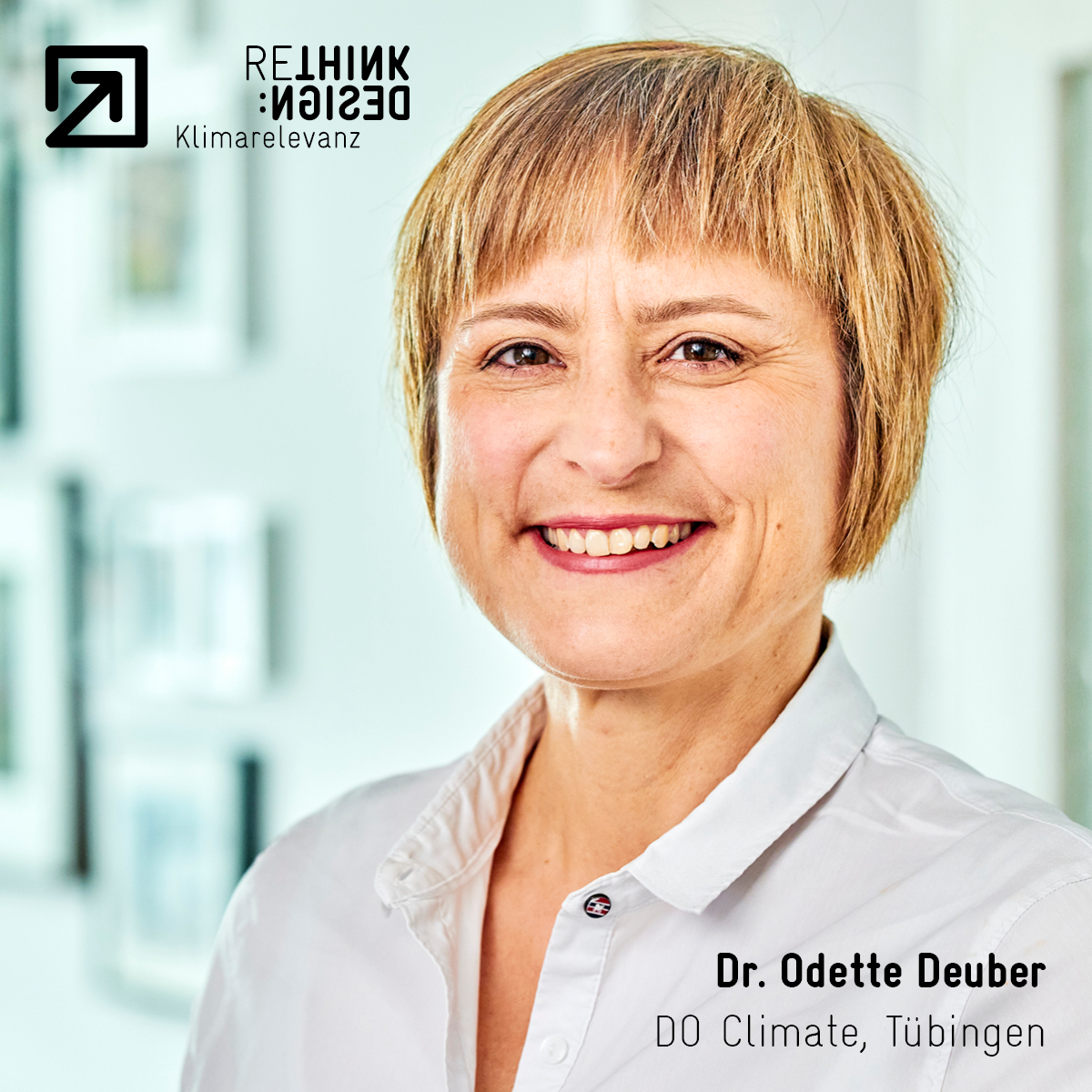
Dr Odette Deuber (DO Climate)
“It’s about a different mindset towards the way you do business!”«
It seems easy enough for a company to achieve climate neutrality – or at least that’s what all the advertising suggests. But that’s not the case, says Dr Odette Deuber – ultimately, there’s a great deal more to it than you might first think. And that means adopting a more far-reaching perspective.
Read the interview here.
Interview at sports equipment manufacturer Vaude
“It’s about a different mindset towards the way you do business!”«
It seems easy enough for a company to achieve climate neutrality – or at least that’s what all the advertising suggests. But that’s not the case, says Dr Odette Deuber – ultimately, there’s a great deal more to it than you might first think. And that means adopting a more far-reaching perspective.
Read the interview here.
Interview at sports equipment manufacturer Vaude
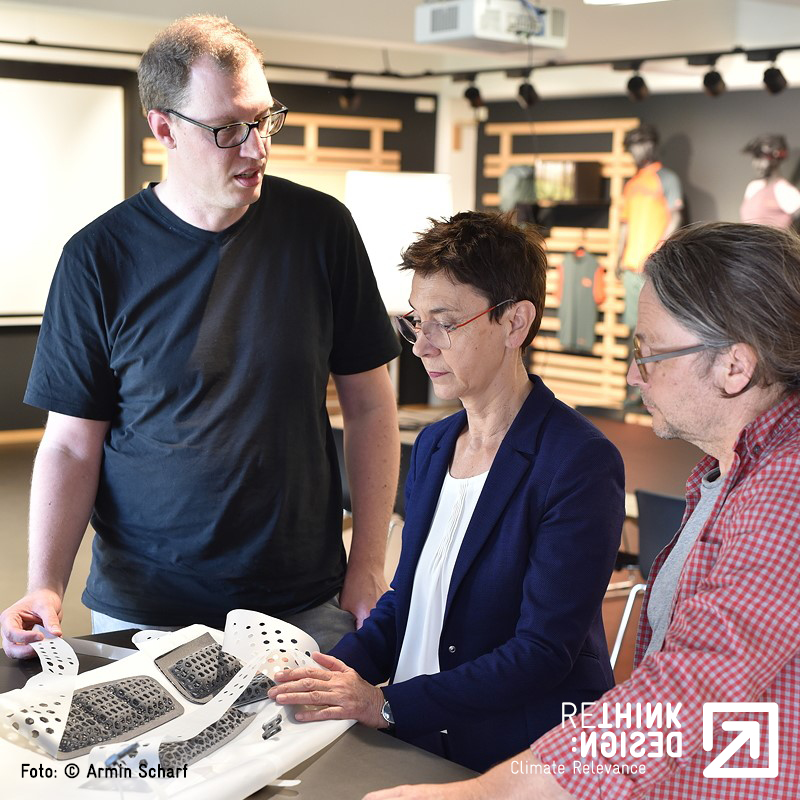
René Bethmann and Mario Schlegel (Vaude)
“What matters is that management wants the transformation!”
At its headquarters near Tettnang in Baden-Württemberg, Vaude has been climate-neutral since as far back as 2012. The outdoor brand is in the process of gradually switching its product portfolio to recycled or bio-based materials. We spoke to head of design Mario Schlegel and innovation manager René Bethmann about cooperation between technology and design, supply chains and the challenge of observing and evaluating innovations so as to ultimately implement them with partners. And: just because something looks sustainable doesn’t mean it really is sustainable.
Read the interview here.
Interview at design agency Ottenwälder und Ottenwälder
“What matters is that management wants the transformation!”
At its headquarters near Tettnang in Baden-Württemberg, Vaude has been climate-neutral since as far back as 2012. The outdoor brand is in the process of gradually switching its product portfolio to recycled or bio-based materials. We spoke to head of design Mario Schlegel and innovation manager René Bethmann about cooperation between technology and design, supply chains and the challenge of observing and evaluating innovations so as to ultimately implement them with partners. And: just because something looks sustainable doesn’t mean it really is sustainable.
Read the interview here.
Interview at design agency Ottenwälder und Ottenwälder
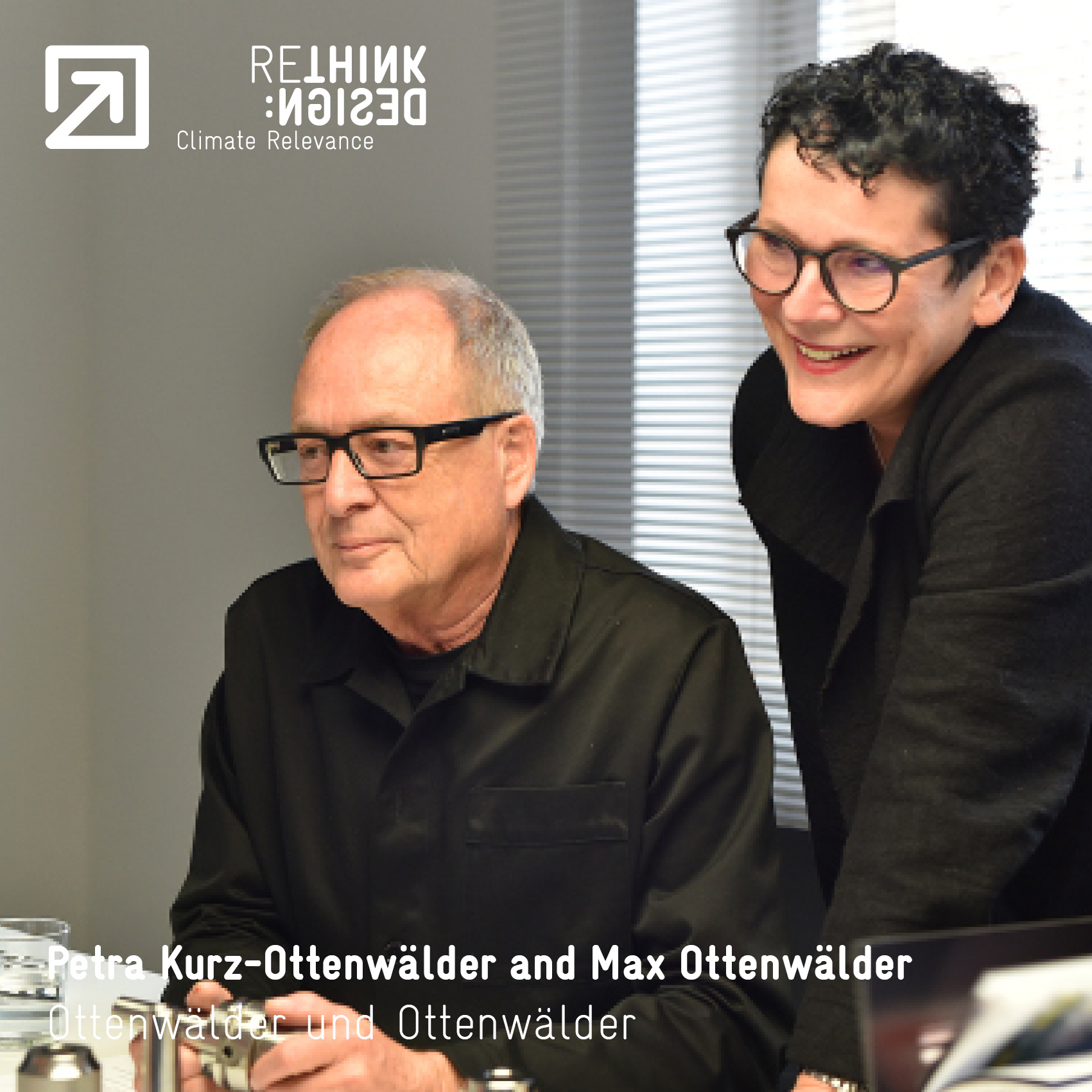
Petra Kurz-Ottenwälder and Max Kurz-Ottenwälder
(Ottenwälder und Ottenwälder)
“It’s really not that complicated!”
Can design agencies be climate-neutral? Yes, says Petra Kurz-Ottenwälder.
Read the interview here.
(Ottenwälder und Ottenwälder)
“It’s really not that complicated!”
Can design agencies be climate-neutral? Yes, says Petra Kurz-Ottenwälder.
Read the interview here.
Talk by Prof Tina Kammer, InteriorPark.
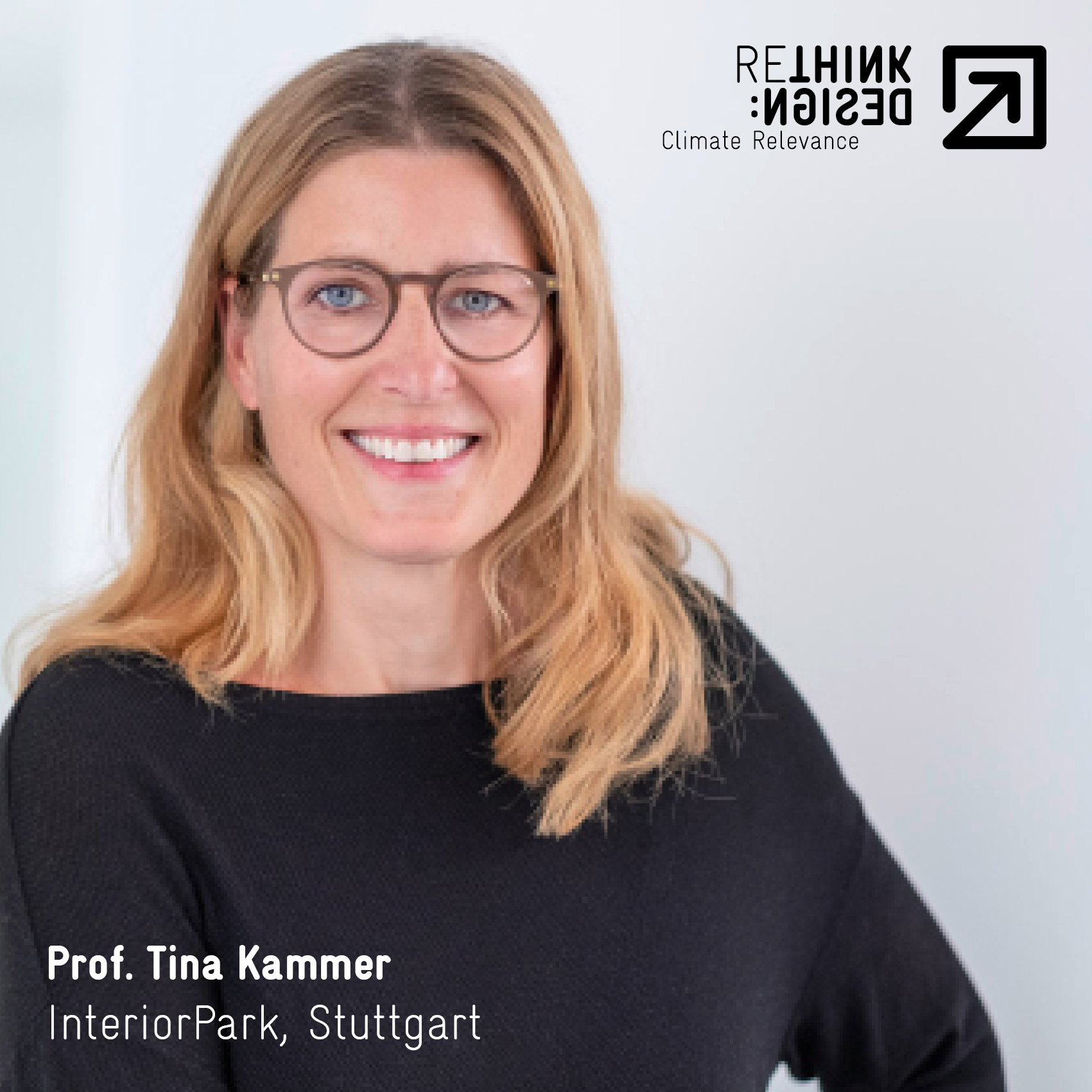
Prof Tina Kammer (InteriorPark.)
“The future starts today!”
The transformation away from a linear throwaway society and towards a circular economy calls the design process used so far into question. To meet their responsibility, companies have to integrate circular processes – and design is a crucial starting point for that. To what extent can that help minimise the impacts on the environment and humans and give rise to a sustainable economic system? The talk by Prof Tina Kammer explores the opportunities presented by these developments.
Click here to watch the talk (in German).
“The future starts today!”
The transformation away from a linear throwaway society and towards a circular economy calls the design process used so far into question. To meet their responsibility, companies have to integrate circular processes – and design is a crucial starting point for that. To what extent can that help minimise the impacts on the environment and humans and give rise to a sustainable economic system? The talk by Prof Tina Kammer explores the opportunities presented by these developments.
Click here to watch the talk (in German).
Interview with Christiane Nicolaus, Design Center Baden-Württemberg
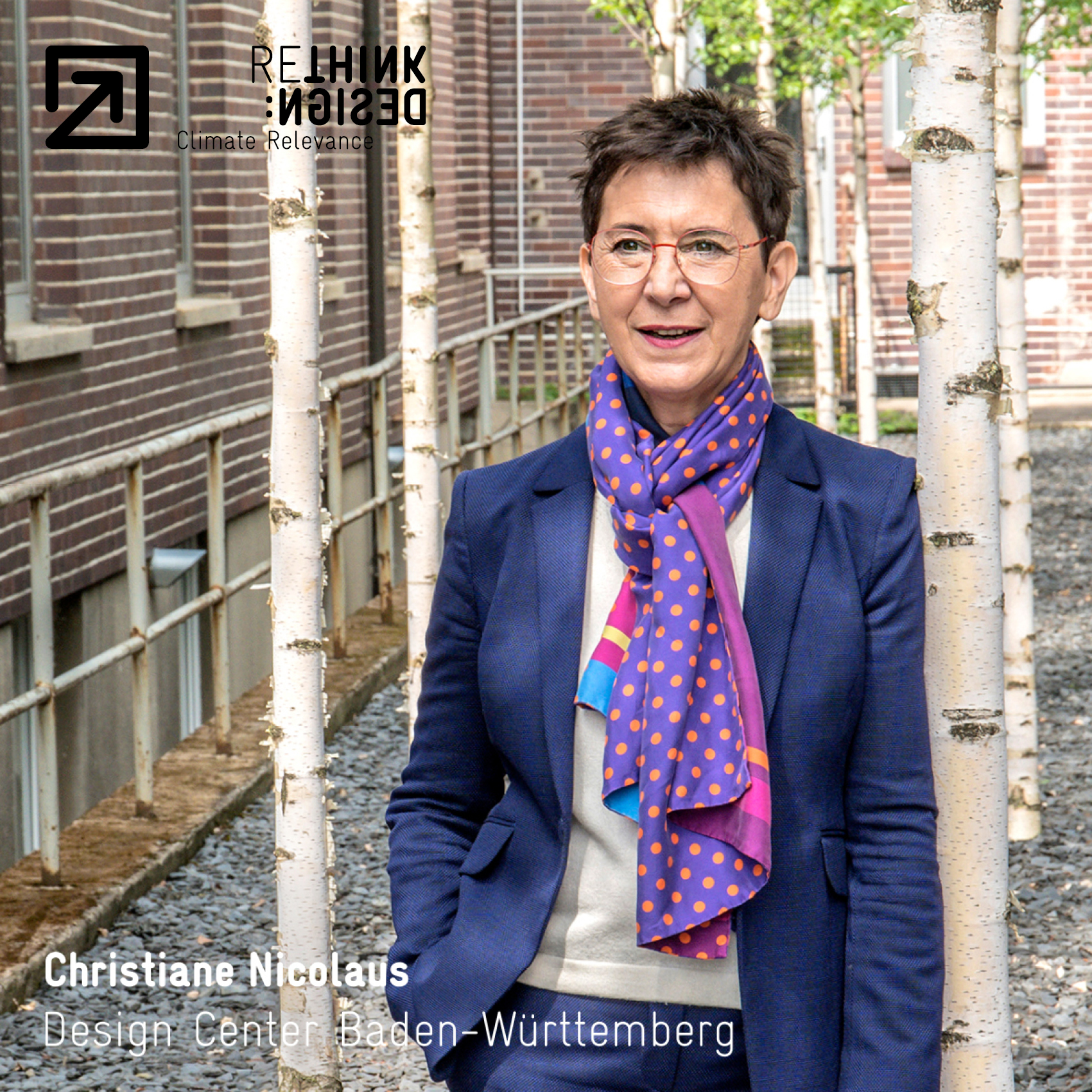
Christiane Nicolaus
“Sustainability is driving innovation!”
What can designers contribute in terms of saving the global climate? A lot, says Christiane Nicolaus, director of the Design Center Baden-Württemberg. She also believes that climate-friendly design can result in a competitive advantage. An interview about RETHINK:DESIGN and a new departure for an industry.
Read the interview here.
“Sustainability is driving innovation!”
What can designers contribute in terms of saving the global climate? A lot, says Christiane Nicolaus, director of the Design Center Baden-Württemberg. She also believes that climate-friendly design can result in a competitive advantage. An interview about RETHINK:DESIGN and a new departure for an industry.
Read the interview here.
Interview with InteriorPark.
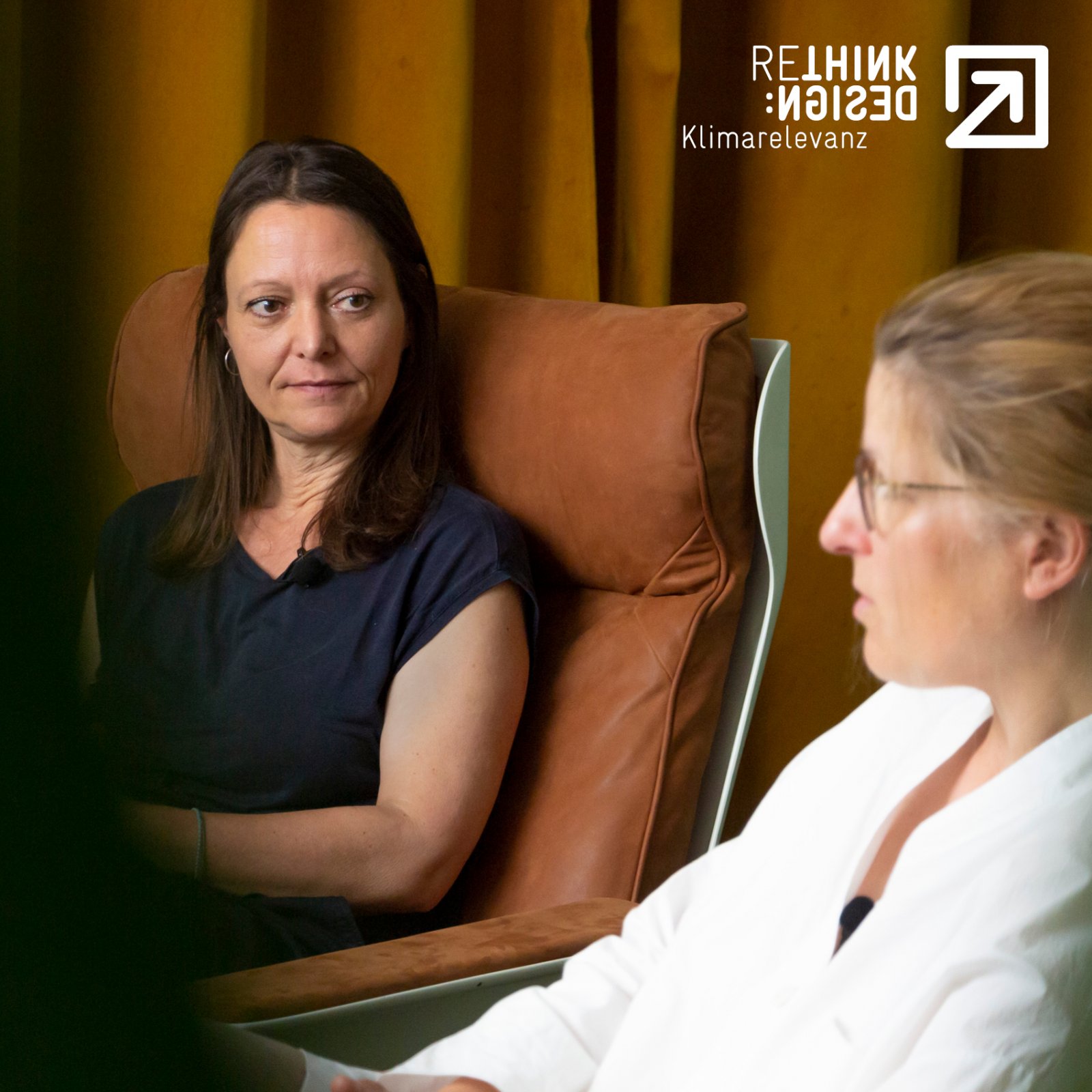
Andrea Herold and Prof Tina Kammer
“We need the transformation of processes!”
The current economic model based on linear processes is not sustainable – that much should be obvious by now. But what’s the alternative? And can the transformation to a circular economy actually succeed? Yes, say Andrea Herold and Tina Kammer, whose Stuttgart firm InteriorPark. advises companies and designers on how to become more sustainable. But what exactly is sustainability?
Read the interview here. (in German)
Are you also on your way to becoming climate-neutral? What prompted your decision?
Write to us at: design@rps.bwl.de
“We need the transformation of processes!”
The current economic model based on linear processes is not sustainable – that much should be obvious by now. But what’s the alternative? And can the transformation to a circular economy actually succeed? Yes, say Andrea Herold and Tina Kammer, whose Stuttgart firm InteriorPark. advises companies and designers on how to become more sustainable. But what exactly is sustainability?
Read the interview here. (in German)
Are you also on your way to becoming climate-neutral? What prompted your decision?
Write to us at: design@rps.bwl.de
